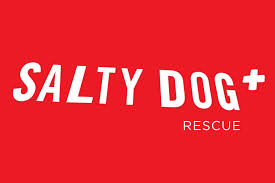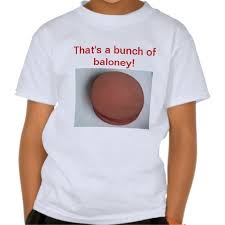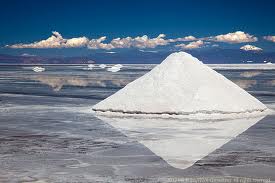LETTERS FROM THE GLOBAL PROVINCE
Salt of the Earth (or Maybe Sea), Global Province Letter, 27 August 2014
Salty Dog. Salty dog has a lot of meanings. Right at the moment it refers to us. We had a cataract operation in June, and it went a bit awry. Things swelled up in our eye socket so that we became a Cyclops, and we could not see anything out of our left eye for several days, other than strange black floaters that convinced us that a cluster of summer flies had descended upon us. Some antibiotics and a bunch of eye drops were what the doctor ordered, and we felt half cured after being overdosed with them. Yet from June to August, things never quite looked or felt right when we arose in the morning.
 Seven days ago the venerable ophthalmologist who had done the operation pulled a new elixir out of his magic kit. He told us to try saline solution (i.e, sodium chloride Muro 128) three times a day. Overnight the redness, the slight ache, and the now-and-again cloudiness disappeared. With salt in the eye, we felt like a million dollars. We are now instructed that sometimes it is just dandy to put salt on the wound. It puts a bounce in the step and some clarity in one's thinking
Seven days ago the venerable ophthalmologist who had done the operation pulled a new elixir out of his magic kit. He told us to try saline solution (i.e, sodium chloride Muro 128) three times a day. Overnight the redness, the slight ache, and the now-and-again cloudiness disappeared. With salt in the eye, we felt like a million dollars. We are now instructed that sometimes it is just dandy to put salt on the wound. It puts a bounce in the step and some clarity in one's thinking
Salt, We Misjudged You. Back in 2012, Gary Taubes, a medical researcher, opined in The New York Times that salt was much maligned in a spritely article "Salt, We Misjudged You." It seems that the medical cabal, including the National Institutes of Health, the Department of Agriculture, the AMA, the USDA, the CDC, and the American Heart Association, had all advocated very low salt intakes (give or take 2000 milligrams) based on precious little evidence and the most fragmentary studies such as the 30-day trial of salt, the 2001 DASH-Sodium study. Salt, which had played such a large part in human progress, as a preservative and even as a way to riches, has been sent into exile by the panjandrums of modern medicine. Even though common men aplenty knew it tasted good, and run-of-the-mill health workers knew it played a big part in the optimum workings of the body. (And as we have avowed above, it set our orbs to working again.) It is long since time to put salt back on a pedestal.
Lack of Salt May Sink You. Most recently we learn that too little salt may lay you low. The New York Times, which is more inclined to waffle on issues these days, blows smoke at us in its appraisal of the situation. But straight-shooting Ron Winslow of the Wall Street Journal suggests that "Low-Salt Diets May Pose Health Risks." He cites recent more definitive findings:
"The new study, which tracked more than 100,000 people from 17 countries over an average of more than three years, found that those who consumed fewer than 3,000 milligrams of sodium a day had a 27% higher risk of death or a serious event such as a heart attack or stroke in that period than those whose intake was estimated at 3,000 to 6,000 milligrams. Risk of death or other major events increased with intake above 6,000 milligrams.The findings, published in the New England Journal of Medicine, are the latest to challenge the benefit of aggressively low sodium targets—especially for generally healthy people. Last year, a report from the Institute of Medicine, which advises Congress on health issues, didn't find evidence that cutting sodium intake below 2,300 milligrams reduced risk of cardiovascular disease."
 Years ago an astute dietitian at a large New York medical institution convinced us that you should take any medical finding, particularly as to diet, with a grain (or several grains) of salt, because the medical grand poobahs will reverse their pronouncements before you can say, "Jack Robinson." The medical experts would appear to have it wrong on salt, but we should know that the final word is not in. There's more to be heard before we know how and when and where we should and should not use salt.
Years ago an astute dietitian at a large New York medical institution convinced us that you should take any medical finding, particularly as to diet, with a grain (or several grains) of salt, because the medical grand poobahs will reverse their pronouncements before you can say, "Jack Robinson." The medical experts would appear to have it wrong on salt, but we should know that the final word is not in. There's more to be heard before we know how and when and where we should and should not use salt.
Sea Salt vs. Table Salt. The newspapers do not get into further dimensions of the great salt debate. Most of the salt we encounter (table salt) is mined on land and put through awkward, taste-sucking, health- losing industrial processes; and so it is called 'refined salt.' Salt of the sea, unrefined, is taken to be much better, principally because some 20% of it is composed of minerals other than sodium, which are taken to be terribly beneficial to mankind. A number of alternative medicine doctors and scientists harp on this consideration, and they believe that lack of natural salt is the root cause of many, many troublesome diseases.
 Those looking for a full-blown exegesis on sea salt by a true believer might look at David Brownstein's Salt Your Way to Health. On a philosophical level, we can acknowledge a core assumption of the alternative natural food people. Our environment and our broad use of insufficiently understood and regulated pharmaceuticals have thrown our bodies and our so-called microbiome out of whack. So we need to do some fundamental things to get our systems in balance.
Those looking for a full-blown exegesis on sea salt by a true believer might look at David Brownstein's Salt Your Way to Health. On a philosophical level, we can acknowledge a core assumption of the alternative natural food people. Our environment and our broad use of insufficiently understood and regulated pharmaceuticals have thrown our bodies and our so-called microbiome out of whack. So we need to do some fundamental things to get our systems in balance.
So What Salt Should You Eat? Who Knows? The science is not very good here. We ourselves think you should drift to larger grain sea salt, since some of it tastes better, and its extra minerals probably cannot hurt you. And we have a hunch you should do about 3000 milligrams, but you should not get your salt from processed foods. To get started on more interesting salts, look into our colleague's suggestions on Spicelines, where you will find "The Five Salts You Really Need."
Salty Humor. Of course you can worry yourself to death over this whole thing. Thinking too much about health and not enough about delicious food will probably kill you well before you suffer from too much or too little salt. Laugh it off by reading pepper's taunting letter to salt which you can find in Kinfolk:
"Dear Salt,I have a bone to pick with you. If we're going to continue sharing the same space on the table, as we have been civilly for centuries, it's only fair that we start addressing the recent development of your superiority complex. I've been undermined as the lesser shaker for far too long, so I think it's time to balance the seasonings.
You've become such a cosmopolitan harlot. Everyone can't stop harping on about French fleur de sel this, Himalayan rock salt that. But while you go around whoring yourself out to any salty body of water available, I was once a commodity that could only be sourced from faraway Asia."
Pepper does have a point. We do find that its uses are infinite if one purchases big flakes and unusual varieties.
P.S. If you have sworn off salt for whatever reason, do not despair. You can still enjoy it by making the world your platter. Salar de Uyouni, the world's largest salt flat of some 4,000 square miles, is said to be spectacular. High up are Salinas Grandes, breathtaking salt flats in Argentina according to our friends there. Look at these fields of white if you think you should not eat it.
P.P.S. The great salt debate reveals the fundamental quandary of modern medicine. The doctors are fairly good at treating flare-ups and short term diseases. They do not deal well at all with chronic health problems (which particularly beset the hugely growing senior segment of the population in developed countries) and do not have a strategic view of their medical mission.
P.P.P.S. The debates about salt and cholesterol and what diet to adopt really comprise distractions from the main long-term dietary considerations as to what will help us to a long and happy life. One rather flabby volume that gets us to look at our diets in a comprehensive way is David Perlmutter's Grain Brain, which steers us away from all sugars and grains. And it tells us to goose up the brain with omega 3s. (We are told that it is really only the DHA component that one is really after.) One should note that several scientists do consider his claims inflated. The terrible dilemma in our digital information world is that it is all too easy to fall for distractions rather than to grope one's way to the main health issue. We ourselves, of course, are of the dilettanti so we always go down pleasurable byways off the beaten path.
P.P.P.P.S. Medicine now deals with life by shoving too many pharmaceuticals at us. Old, simple, across-the-counter remedies are neglected at a cost to our pocket and our health. In this vein, one should pay heed to Jim Duke who wants to push the FDA to test more everyday remedies that crop up in nature and tend to have less side effects.
Home - About This Site - Contact Us
Copyright 2014 GlobalProvince.com